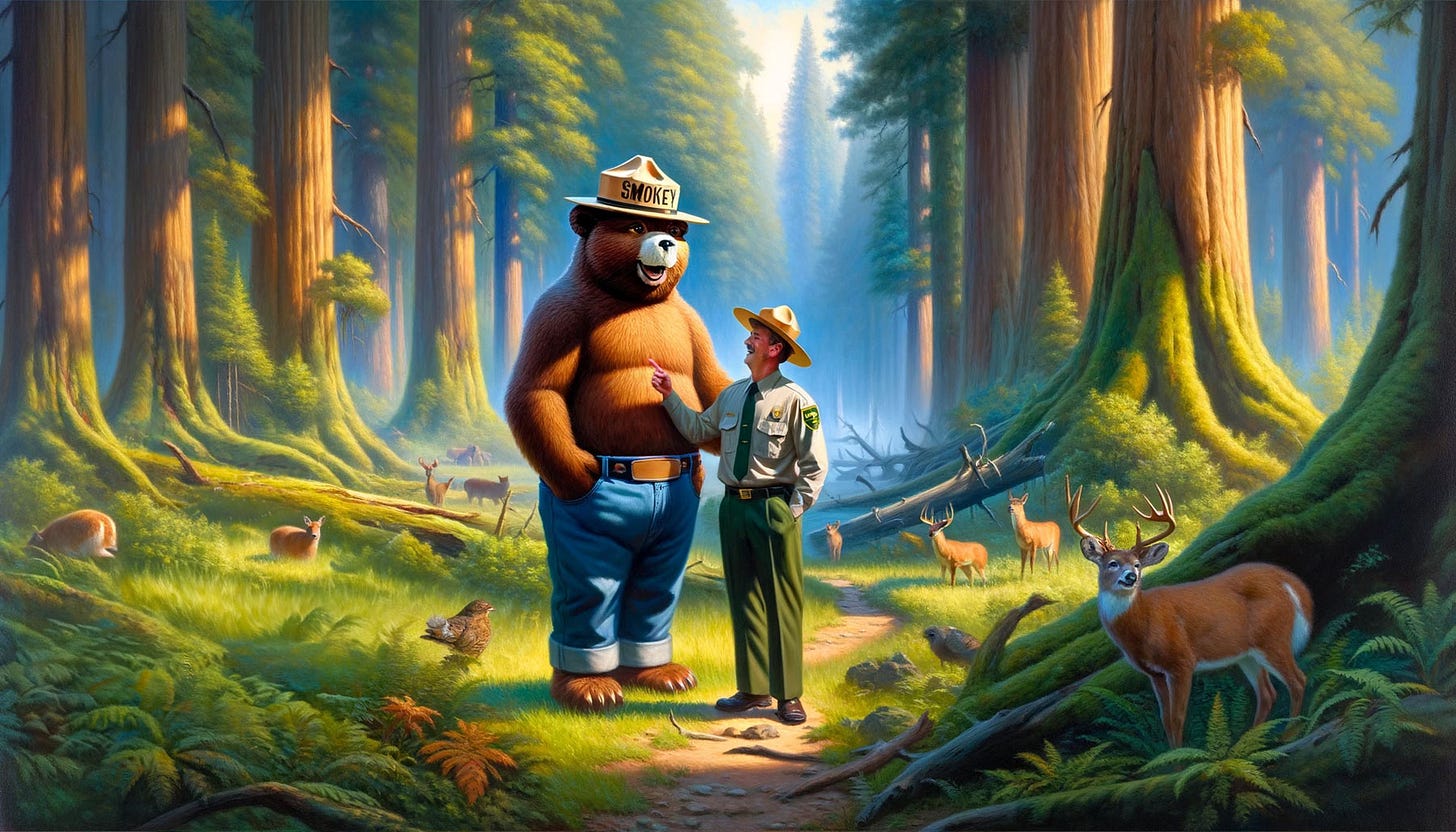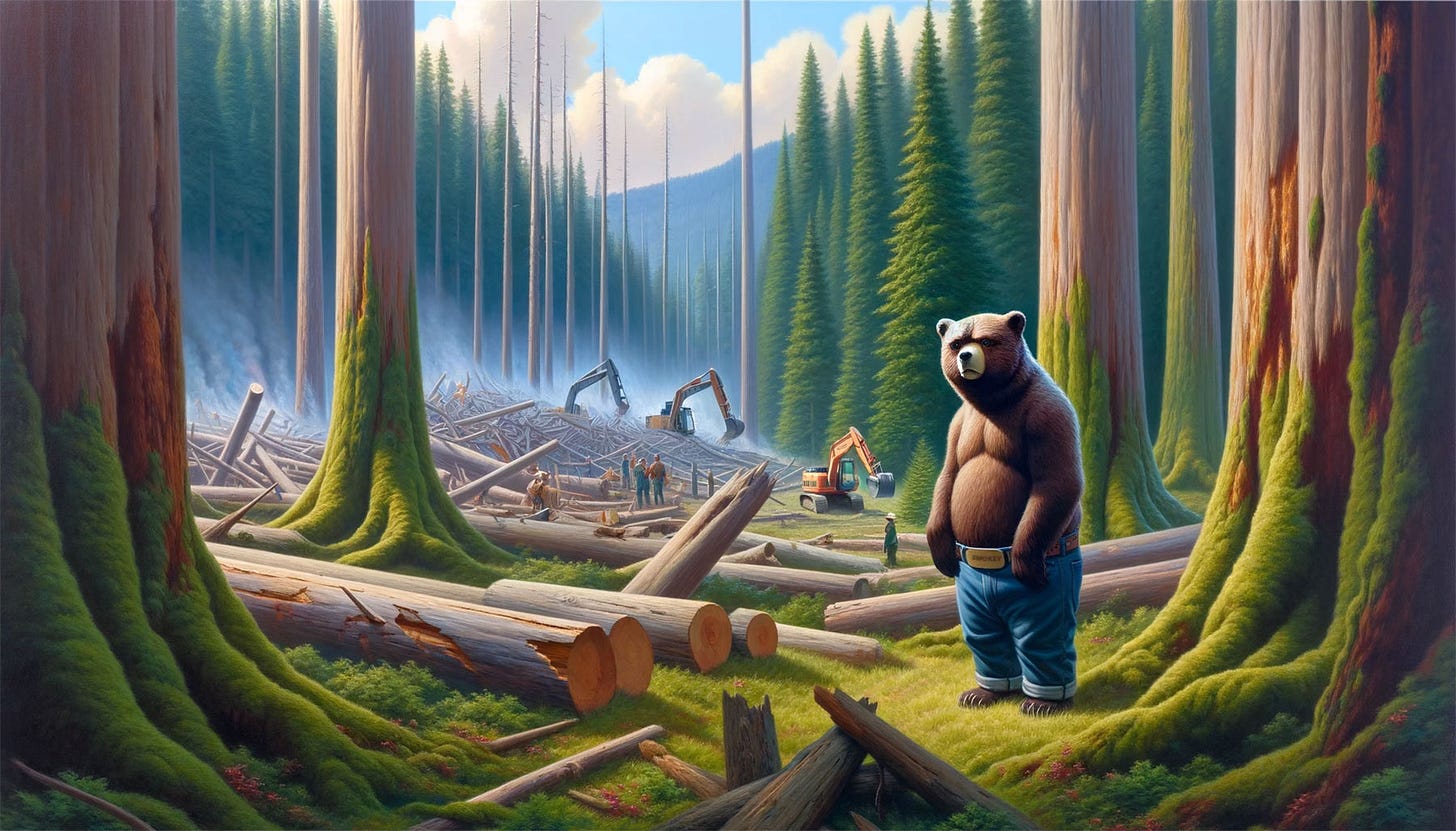If An Old Growth Tree Falls in The Forest, Will You Make A Sound?
Americans have a historic opportunity to lead the world in old growth forest conservation
With January almost in the rear view mirror today I wanted to talk about a timely issue that you have an opportunity to weigh in on.
A Gift For Future Generations
Just last month everyone who enjoys the great outdoors got quite the Christmas gift when the Biden administration announced it was moving to ban logging in old growth forests across the country. The proposed rule would amend the forest plans of every national forest in the country to ensure the protection of old growth trees (with a few exceptions). I’ll get back to this proposed rule in a bit.
A Turning Point
Back in 2022 President Biden initiated a first-of-its-kind inventory of America's old-growth forests. This historic action represented a turning point for America’s forests which since the Europeans first arrived in the new world have been seen as little more than a resource to be exploited.
Perhaps you’re thinking, “it’s 2024, surely we moved past that kind of short-sighted mindset a long time ago”. Well just ask John Pineau, executive director of the Ontario Woodlot Association who shared his view in a recent article in Canada’s National Observer entitled "The U.S. is banning old-growth logging. Why can’t we?” When asked about the importance of keeping old growth forests intact John offered this sage advice, “What people forget is forests ultimately live a futile life and fall over eventually. You need to regenerate the forest.”
You see John and other wayward timber industry reps that are addicted to old growth logging like a teen and an e-cigarette would have you believe that those sequoias in California live a futile life and need to be regenerated through the miracle treatments of Dr. Buzzsaw.
You can find other statements from industry representatives stressing the need to reduce fuel loads to prevent wildfires as a justification for old growth logging – as if we should cut down the Mariposa Grove in order to save it. In reality these folks simply don’t like seeing potential sources of revenue taken away from them. They see trees in terms of dollar value, and as John Muir once said, “nothing dollarable is safe, however guarded.”
Of course the timber industry is vitally important to our economy and our basic ways of life – there’s no debating that. And the majority of foresters and timber outfits in the U.S. are undoubtedly going about things the right way. But there’s really no excuse to be logging the last remaining old growth forests in the richest country on earth.
“If future generations are to remember us with gratitude rather than contempt, we must leave them more than the miracles of technology. We must leave them a glimpse of the world as it was in the beginning, not just after we got through with it.”
– Lyndon Johnson
Yes there are a few communities that still rely on logging old growth, but solutions aren’t as elusive as industry representatives might have you believe. Take, for example, this Alaska Native corporation that gained access to California’s carbon trading markets. They’re now being paid not to log over 150,000 acres of old-growth forest for the next century by BP.
Will You Speak For The Trees?
All of this brings me back to the Biden administration’s historic effort to ban logging old growth forests across the country’s 193 million acres of Forest Service land. We’re very close to leading the world into a new era of recognizing the value of ancient trees and forests. But we’re not there yet.
The Forest Service is seeking public comment on this momentous rule and that comment period closes February 2nd. That’s three days away. I encourage you, if you enjoy wandering the elder forests of our public lands and the diverse life they support, then let the Forest Service know it by submitting your comment here.
One more thing. This rule won’t be finalized until 2025. That means that, in the event there were a President not as inclined as the current one to protect old growth forests he or she could withdraw the rule before it takes effect.
Here’s the Deal On Paid Subscriptions
You love national parks. We love national parks. We love writing about our national parks. Do you love our writing about national parks enough to cover the next bundle of firewood?
Don’t Forget About Our Q&A
Every week we’re reading your questions and comments and answering them. Every so often, when we get enough interesting ones we include them in a newsletter. Why not make yours next? Just send us an email. We’ll get back to you whether or not we’re able to post your question in a subsequent newsletter.
My Closing Thoughts
Thanks for continuing to read along! We've received a flurry of very kind notes from folks over the past few weeks who have been enjoying our newsletters, and I want to say, on behalf of Will and me, that we're grateful for your support and really appreciate you taking the time to let us know we're doing something right.
– Jim









I had no idea about this and thoroughly enjoyed reading about it. Kudos and thanks for enlightening me! Left my comment with the Forest Service.